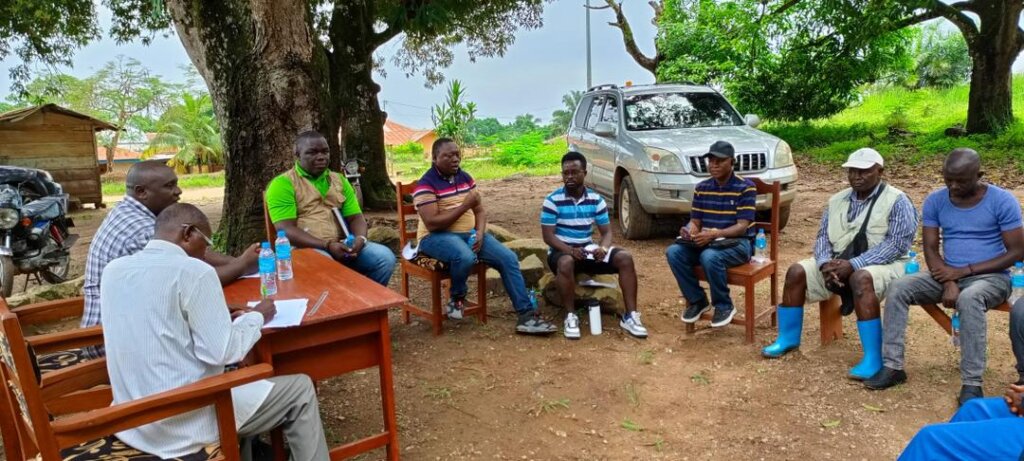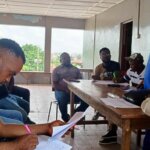
IN RECENT YEARS, Sierra Leone has witnessed a surge in development projects that are mainly supported by corporate entities, particularly in the mining sector. The main aim of these projects is to foster sustainable growth and community well-being. A fundamental aspect of this development paradigm is the implementation of social audits for mining accountability – a comprehensive and participatory evaluation process that holds stakeholders accountable for the impact of their actions and inactions on local communities. NMJD is presently implementing a social audit initiative titled: Social Audit for Mining Accountability in Kenema, Kono, and Moyamba/Bonthe Districts. It is funded by Development and Peace Caritas Canada (D&P).
definition
Social audit is a systematic examination of how well an organization or project adheres to its social and ethical responsibilities. It goes beyond traditional financial audits, encompassing a broader spectrum of considerations, including environmental impact, human rights, community engagements, and social justice. In the context of Sierra Leone’s mining sector, social audits play a crucial role in ensuring transparency, accountability, equity, and sustainable development.
social audit project
NMJD’s social audit project focuses on key mining regions in Sierra Leone, namely Kono (Nimikoro, Gbense, Tankoro), Kenema (Tongo), and Moyamba/Bonthe (Mogbemo and Mosensie). The selection of these locations is strategic, driven by the need to address specific challenges and opportunities unique to each region. Nimikoro, for instance, might face distinct environmental concerns compared to Tongo, necessitating tailored approaches for effective social auditing.
The relevance of the social audit project in these mining regions cannot be overstated. The mining sector, while contributing significantly to economic growth, often faces criticisms related to its contribution to environmental degradation, human rights abuses and inadequate community benefits. By conducting social audits, stakeholders can identify and rectify shortcomings promptly, ensuring that the positive impact of mining operations aligns with the needs of the local communities.
The anticipated outcomes of the social audit project include enhanced community engagement, improved environmental practices, reduction in human rights abuses and increased transparency in resource distribution. By fostering collaboration between and among mining companies, government agencies, local authorities and local communities, the project aspires to create a model for responsible and sustainable mining practices in Sierra Leone.
role of key actors
The success of the social audit project largely depends on the active involvement of key stakeholders. They include the Ministry of Mines and Mineral Resources, National Minerals Agency, Audit Service Sierra Leone, and Community Development Committees in the mining communities. They all have pivotal roles to play towards the successful implementation of the project. The Ministry of Mines and the National Minerals Agency provide regulatory frameworks, while the Audit Service Sierra Leone and Community Development Committees ensure accountability and community participation, respectively.
conclusion
As Sierra Leone continues its journey towards sustainable development, initiatives like the social audit project, underscore the relevance of accountable and ethical practices in the mining sector. By promoting transparency and inclusivity, this project equally seeks to promote responsible natural resource management and foster a more equitable distribution of proceeds from our natural resources and a sustainable future for Sierra Leone and Sierra Leoneans.
Original Post Author

Alusine Bai Kamara
M&E Officer / Social Auditor - NMJD




Leave a Comment